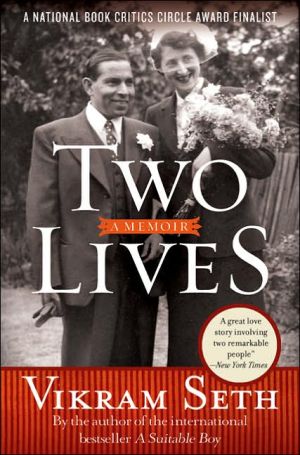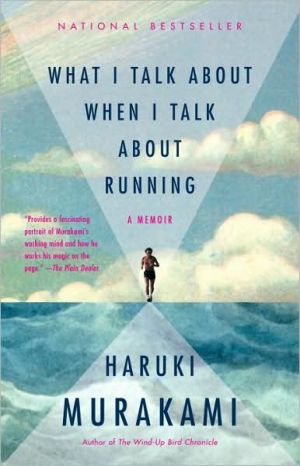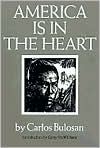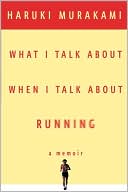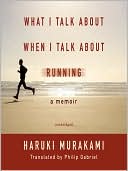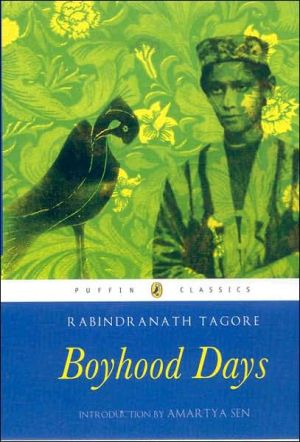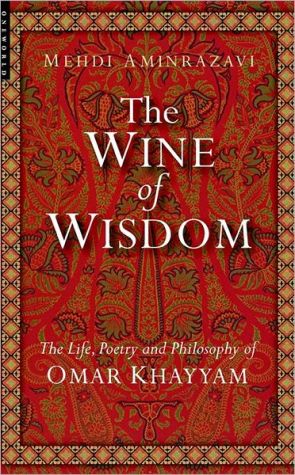Two Lives: A Memoir
"The heartrending story of a two people, a marriage, and a century from the author of A Suitable Boy. . . . “[A] thoughtful, evocative, moving book.”—Jonathan Yardley, Washington Post Book World Two Lives is an extraordinary tapestry of India, the Third Reich and the Second World War, Auschwitz and the Holocaust, Israel and Palestine, postwar Germany and 1970s Britain. Part biography, part memoir, part meditation on our times, here is a masterful work from one of our greatest living...
Search in google:
A heartrending new book -- the story of a marriage and the story of two lives -- from the author of the international bestselling novel A Suitable Boy. Shanti Behari Seth was born on the eighth day of the eighth month in the eighth year of the twentieth century; he died two years before its close. He was brought up in India in the apparently vigorous but dying Raj and was sent by his family in the 1930s to Berlin -- though he could not speak a word of German -- to study medicine and dentistry. It was here, before he migrated to Britain, that Shanti's path first crossed that of his future wife. Helga Gerda Caro, known to everyone as "Henny" was also born in 1908, in Berlin, to a Jewish family -- cultured, patriotic, and intensely German. When the family decided to take Shanti as a lodger, Henny's first reaction was, "Don't take the black man!" But a friendship flowered, and when Henny fled Hitler's Germany for England just one month before war broke out, she was met at Victoria Station by the only person in the country she knew: Shanti. Vikram Seth has woven together their astonishing story, which recounts the arrival into this childless couple's lives of their great-nephew from India -- the teenage student Vikram Seth. The result is an extraordinary tapestry of India, the Third Reich and the Second World War, Auschwitz and the Holocaust, Israel and Palestine, postwar Germany and 1970s Britain. Two Lives is both a history of a violent century seen through the eyes of two survivors and an intimate portrait of their friendship, marriage, and abiding yet complex love. Part biography, part memoir, part meditation on our times, this is the true tale of two remarkable lives -- a masterful telling from one of our greatest living writers. The New York Times - William Grimes In Shanti, Mr. Seth has top-grade material. His great-uncle was a splendid raconteur with a wealth of opinions and a lively turn of phrase (on full display in his scolding of an R.A.F. officer on the topic of British colonialism) … Mr. Seth draws a loving, vivid portrait of his great-uncle, and the reader, like Mr. Seth, is reluctant to let him go when he finally dies at the age of 89.
Two Lives\ A Memoir \ \ By Vikram Seth \ HarperCollins Publishers, Inc.\ Copyright © 2006 Vikram Seth\ All right reserved.\ ISBN: 0060599677 \ \ \ Chapter One\ \ When I was seventeen I went to live with my great-uncle and great-aunt in England. He was Indian by origin, she German. They were both sixty. I hardly knew them at the time.\ It was August 1969 -- the monsoon season in Calcutta. A few days before I left, Mama had taken me to a temple to be blessed, which was most unlike her. She and Papa came to see me off at Dumdum Airport. I arrived at Heathrow in the afternoon. My great-uncle and great-aunt were still away on their annual holiday in Switzerland and, as I recall, I was met at the terminal by someone in the firm for which my father worked. My first impression was of the width of the road that led (under grey skies) to London. I was housed for a night in a drab hotel somewhere near Green Park.\ That evening Shanti Uncle and Aunty Henny returned from Switzerland, and the following day I and my luggage arrived at their door.\ I looked at the house that was to be my home for the next few years. There was a red pillar-box not far from the gate of 18 Queens Road, Hendon; this was to be my beacon whenever I trudged up from the tube station. In front of the house was a small, low-walled, immaculately maintained garden with a few rosebushes in full bloom. A path led to thedoor. To the right of the path, slanted on a stand, was a burnished brass plaque that read:\ S. B. Seth\ L.D.S., R.C.S. (Edin.), B.Sc., D.M.D. (Berlin)\ Dental Surgeon\ I set down my luggage on the front step. The thought of meeting people whom I had not seen for years and did not really know, and whose home I would be sharing, made me nervous. I was, in any case, fearfully shy. After a minute I rang the bell.\ Aunty Henny appeared. Lean, tall, sharp-featured and attractive, she didn't look sixty. She greeted me with enthusiasm rather than warmth, and led me down the linoleum-floored hallway where three or four people were seated, browsing through old magazines. 'Shanti's patients,' she explained. She poked her head into the surgery to exclaim in her high voice, 'Shanti, Vicky is here,' before opening the door to the drawing-room. 'No, leave the luggage in the corridor, by the stairs,' said Aunty Henny. 'Now sit down and I shall make some tea.'\ Since I had been told by Mama not to give any trouble and to be helpful at all times, I offered to help. Aunty Henny would have none of it. I sat down and surveyed the room. Everything seemed inordinately tidy, down to the nested set of varnished side-tables and a polished cabinet for the television.\ Aunty Henny brought tea with three cups, and soon afterwards Shanti Uncle took a break from his work. He was still dressed in his white dental jacket. As soon as he came in, he hugged me, then stood back and said, 'Now let me look at my little Vicky. It has been so many years since I saw you. Now you must tell me how your parents are, and what your journey was like. Have you got all your kit for school? Have you eaten? Henny, the boy's starving, you can tell. We must feed him up. Let's open a tin of peanuts. Have you shown him his room?' Aunty Henny looked on impatiently. Suddenly Uncle glanced at his watch, gulped his tea down and rushed back to the surgery.\ In those days I was very sensitive about my height and cringed whenever anyone called me little. Shanti Uncle, however, was even shorter than I was, and Aunty Henny towered over him. Nor did I like being called Vicky, even though in India it would not be taken for a feminine diminutive. But my overwhelming sense was that of relief. Uncle's talk filled in, indeed flooded, all my awkward silences. And his hug had made me feel welcome, though it was made with only one arm. His right arm, being artificial, was withheld from the embrace.\ I had been to England twice before. When I was two and a half years old, I travelled by sea with an uncle and aunt who happened to be going there. I was to join my parents, who had left a year or so earlier: the Bata Shoe Company, for which my father worked, had transferred him to head office in London. My widowed grandmother - my mother's mother (whom I called Amma) - had been left in charge of me at home, and I grew very attached to her. When I began to speak, Amma insisted that it be in Hindi and only in Hindi. She herself was perfectly bilingual, but had decided that I would get more than enough English in England. As a result, when I was delivered to my parents in London, they found that I couldn't speak or understand a word of the local language.\ Shortly after my arrival, I was taken to see Shanti Uncle and Aunty Henny. During the time my mother had been in England, she had become very fond of Shanti Uncle, and he of her. Both Aunty Henny and he were keen on children, and were looking forward eagerly to my arrival.\ I don't know whether it was Shanti Uncle's effusiveness or Aunty Henny's European colour and features, but I quickly became uncomfortable. 'I don't like it here, I want to go home,' I stated firmly in Hindi. Shanti Uncle looked startled. When Aunty Henny asked him what I'd said, he told her that I was enjoying myself and would come again, but that I was tired and needed to go home and rest.\ The foreign Aunty Henny, whatever she represented to me, did pose a puzzle to the whole of Shanti Uncle's extended family in India. Uncle had married late, in his forties, and had not brought her to . . .\ \ Continues... \ \ \ \ Excerpted from Two Lives by Vikram Seth Copyright © 2006 by Vikram Seth. Excerpted by permission.\ All rights reserved. No part of this excerpt may be reproduced or reprinted without permission in writing from the publisher.\ Excerpts are provided by Dial-A-Book Inc. solely for the personal use of visitors to this web site. \ \
\ Entertainment Weekly"Something extraordinary... A thoughtful, engrossing narrative... This remarkable book offers rich rewards."\ \ \ \ \ Denver Post"Seth turns biography into powerful literature, distilling the universal human emotions of passion, grief and the will to survive."\ \ \ Seattle Times"[A] beautiful, loving, clear-eyed book... Translucent, telling prose."\ \ \ \ \ Christian Science Monitor"Engaging new memoir... Even as you enjoy one [story], you discover another within."\ \ \ \ \ The New Yorker"Seth has few equals as a literary techinician."\ \ \ \ \ Los Angeles Book Review"Eloquent and elegiacal . . . An intricate study of the way lives and worlds can intertwine."\ \ \ \ \ Washington TimesWonderful . . . A truly heroic tale which demonstrates just how much can sometimes be achieved against monstrous odds."\ \ \ \ \ New York Times"A great love story, involving two remarkable people."\ \ \ \ \ The Economist"A subtle portrait of the complexities of a long companionship . . . A wonderful book."\ \ \ \ \ Jonathan Yardley"[A] thoughtful, evocative, moving book . . . [Seth] is an amazingly gifted, accomplished, resourceful and charming writer."\ \ \ \ \ Anita Desai"Full of affection and tenderness . . . An unfailingly respectful memoirist."\ \ \ \ \ Simon Winchester"I cannot remember ever being quite so moved by a memoir... [Seth’s] achievement has exceeded all possible expectations."\ \ \ \ \ Pankaj Mishra"Sensitive and compassionate... Fulfills the obligation Primo Levi once defined for writers on the Holocaust: it is unadorned and clear."\ \ \ \ \ William GrimesIn Shanti, Mr. Seth has top-grade material. His great-uncle was a splendid raconteur with a wealth of opinions and a lively turn of phrase (on full display in his scolding of an R.A.F. officer on the topic of British colonialism) … Mr. Seth draws a loving, vivid portrait of his great-uncle, and the reader, like Mr. Seth, is reluctant to let him go when he finally dies at the age of 89.\ — The New York Times\ \ \ \ \ Publishers WeeklyIn 1969, Seth, 17, came from Calcutta to London to continue his education and to stay with his Shanti Uncle and Aunty Henny. Their relationship became warm, and it is their stories (as well as his own) that Seth (A Suitable Boy) tells in this wide-ranging, unpredictable and moving account. Shanti was Seth's grandfather's brother, a dentist who studied in Berlin, lodging with Frau Caro, whose daughter, Henny, was in love with someone else. He left for Britain in 1936 because he couldn't practice in Germany, but in 1940, as war broke out, he enlisted, served throughout and lost his right arm in combat, a calamity for a dentist. Meanwhile, Henny, a German Jew, arrived in Britain weeks before war was declared, leaving her beloved mother and sister behind to death camp murder. "Vicky" interviewed his great-uncle at length, and part two of his narrative focuses on Shanti. Part three, Henny's story, even more unusual, is based on a trove of remarkable letters she received and wrote (she often kept carbons), many to friends in Germany during the war. Part four examines their marriage (they didn't marry until seven years after the war), and part five details a family mystery about Shanti's will and Seth's complex but beautifully lucid summation of his research into these lives. This lovely book, "memoir as well as biography," examines great and fearful events seen through extraordinary lives. In clear and elegant writing, Seth explores the macrocosm through the microcosm, resulting in a most unusual, worthwhile book. 3 8-page b&w photo inserts. Agent, Irene Skolnick. (On sale Nov. 1) Copyright 2005 Reed Business Information.\ \ \ \ \ Library JournalSeth (From Heaven Lake: Travels Through Sinkiang and Tibet) has written a beautiful and extraordinary biographical and historical memoir that chronicles the lives of his Indian-born uncle, Shanti Behari Seth (Shanti), and German-born aunt, Helga Gerda Caro (Henny). He deftly takes readers on a whirlwind journey from 1970s-90s England to 19th- and 20th-century India to World War II Germany and back to present-day England. In the course of this journey, Seth, at first a near stranger to his childless uncle and aunt, develops a rich and loving relationship with them. Yet despite their closeness, the author senses a reluctance in his aunt and uncle to speak of their past. Seth relies on his own research, interviews he conducted with Shanti, and various pieces of correspondence to unearth the virtually hidden past of his beloved Uncle Shanti and Aunty Henny, bringing their unassuming and complex relationship to light. His writing is engaging and his characters fully developed and quickly familiar. Highly recommended for all libraries.-Mark Alan Williams, Library of Congress Copyright 2005 Reed Business Information.\ \ \ \ \ School Library JournalAdult/High School-At 17, the Indian-born author left his homeland to study at Oxford. He lived with his aunt and uncle, a middle-class English couple in every way except one-his Uncle Shanti was Indian and his Aunt Henny was a German Jew. Through interviews with his uncle and a trunk of correspondence from his aunt, he is able to tell their story. Readers learn that Shanti, a dentist, lost an arm, and that Henny lost all of her family during World War II. They learn the details of these losses and about the couple's romance. Shanti's story is told first and is in some ways very similar to the narrator's. Henny's story takes up the majority of the book and consists largely of correspondence from before the war until several years after. Hers is mostly a Holocaust story that tells as much about the culture of the time as the woman herself. Finally, they marry, more out of convenience than love, but they stay contentedly together for more than 30 years. The final chapter, a discussion of their estate, seems somewhat rushed and tacked on after the slowly paced narrative that came before. Photographs are scattered throughout. The book is lengthy, but each fact shared is an important building block in telling the tale of this couple in the context of their era. A richly rewarding story.-Jamie Watson, Harford County Public Library, MD Copyright 2006 Reed Business Information.\ \ \ \ \ Kirkus ReviewsThe Indian-born poet (The Golden Gate, 1986) and novelist (A Suitable Boy, 1993) extends his already impressive range with this replete family memoir. It's the story of Seth's London-based great-uncle (his grandfather's brother) Shanti Behari Seth and Shanti's German-Jewish wife Hennerle ("Henny"), with whom young "Vicky" lived when he came from Calcutta to attend university in London in 1969. Part One of this most artfully constructed book juxtaposes Seth's own somewhat discordant educational and career experiences, while affectionately portraying the personality traits (Uncle Shanti's kindhearted fussiness, Aunt Henny's slightly nervous dignified reserve) that somehow made them a perfectly matched couple. Then, following her death and his decade of bereavement, Seth explores Shanti's life (details provided by both "interviews" and correspondence): his studies in 1930s Berlin, patient courtship of Henny Caro (who would not marry him until many years later), departure for England when Third Reich regulations disallowed Shanti from practicing his chosen profession of dentistry and wartime service, during which an exploded shell destroyed his right arm. The absorbing third section is Henny's story, told mostly through the agonized letters she exchanged with family and friends in wartime Germany, after she had emigrated to England. Marred only by a ten-page digression in which Seth analyzes German culture and history's "possible influence in the present century," this is an immensely moving narrative: a splendid small book within a book. Subsequently, Seth details Shanti's and Henny's expatriate marriage, then leaps ahead to Shanti's ailing, deranged last years alone (he died shortly beforehis 90th birthday), concluding with a summation of their story's relationship to Seth's own life-which he has undertaken to explore in "a double biography, an intertwined meditation, where the author is an anomalous third braid." Seth's voice is a fluent, graceful and compassionate one, and the story he tells-in a sense, it's every family's story-should have irresistible appeal. Another triumph for one of the most versatile and engaging of all contemporary writers.\ \
